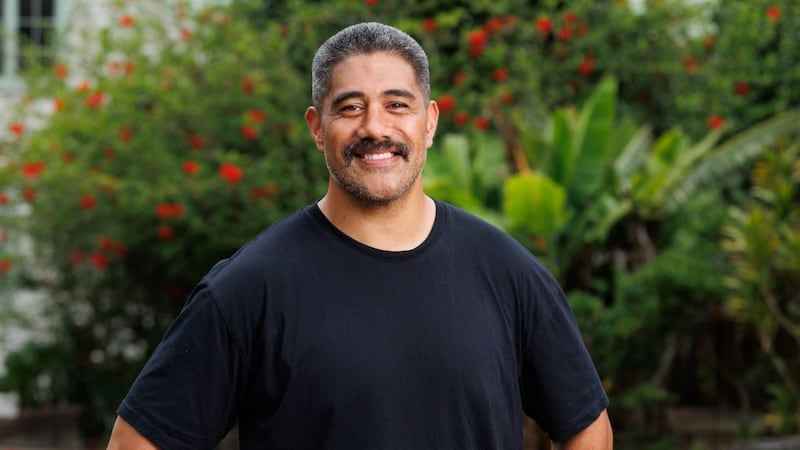“We don’t have to die to show our commitment to our family, to our people but I get it. I get the passion, I get the sentiment.”
That’s according to doctoral candidate Asetoa Sam Pilisi (Alofi North and Avatele of Niue, Sato’alepai and Vailoa Palauli of Sāmoa) who is doing research at the University of Auckland asking Pasifika people the question: “Is it selfish to look after yourself?”
He ran a survey of New Zealand-born Pacifica people’s service to their whānau and community.
Pilisi said while he was running it, he heard Te Pāti Māori MP Hana-Rawhiti Maipi-Clarke interviewed on a podcast, talking about her contributions to the Māori community.
“[The interviewer]asked, ‘What’s your contribution? What do you need to do?’ and then she said, ‘You know, I need to be on for my people’.
“Then she said, ‘You see at the marae people stand up and they reiterate their passion and commitment and they’ll go ‘I’ll die for my people to the very end’. I want the same thing, but I want to live for my people. So what are the things that I need to do to live?’”
Pilisi said this view was similar to his kaupapa, which explored the balance between self-care and the risk of burnout from providing extensive services to the community.
It emphasised the importance of taking time to care for oneself to continue contributing effectively to the community.
“Burnout is under-theorised and not really understood from a Pacific point of view. Lots of literature looks at burnout from a very general population point of view. But how do Pacific people understand burnout and what might be some solutions for Pacific people suffering from burnout?
“[My] observations of my friends, family, people [shows they] are open to new ideas but still you’ve gotta act on it. I think the climate is right for little seeds to be planted and we do what we can do in our lifetime and leave some seeds for the next generation to pick up and make sense for their context.
He said he appreciated that change could be hard. “My solution is to invite people to be part of the codesign and the solution-making process,” he said.

Currently, his research is being analysed. He had collected under 1100 survey responses from those in the community, Pillisi said the results that he has seen so far show people agreeing “that it is OK to look after yourself”.
“People are advocating for balance but it’s tricky and so we need to find ways in that trickiness. How do we account for the different contexts in which we operate?
“Some of us wear many different hats. So it’s not that easy, just in a simple flow diagram to go ‘really say no’, ‘don’t do that, do this’, ‘Just look after yourself’, ‘me, me, me.’
“We have to find ways to respect and acknowledge these multiple hats and responsibilities but give solutions that are going to work towards our lives and our priorities.”
To help in the research he has a diverse Pacific community steering group to critically examine and integrate both Western and Pacific ways of living while ensuring the inquiry remains respectful, strength-based, and avoids portraying the culture negatively.
“We have to balance that though, with respect and love. So how do we take our Pacific community on a journey, knowing that from a strength-based position, service is important, collectivism and family and community are important.
“We have to respectfully push into new areas, critically analyse or interrogate things and then invite the community to provide feedback and respectfully listen to that,” he said.
What does ‘service’ mean?
Pilisi explained in the survey the meaning of ‘service’ was different for each participant.
“It’s very subjective. It can mean many different things to different people. Part of how we framed it in the survey was that serving is the nature of perhaps giving, and that can be anything in terms of your resources, time, money, your skills, your energy.
“So, in that umbrella of many different things, we’ve seen collection-wide variety of responses of how people see service.
“People see washing the dishes as service; people are turning up to a job and advocating for their communities as service; people see coming to uni and getting that qualification as service, serving your family and repaying the sacrifices of people who came here many years ago,” Pilisi said.
Te Ao Māori News asked him if he had ever experienced burnout. He said his “stubborn self would say no” but he probably has in the past.
“The pride in me as a son of the Pacific, of Samoa, of Nuie, of central Auckland, would say ‘I will always rise for my community, I will stand up and that I will forgo my tiredness or whatever else to stand on behalf of my people’.
“So I would probably say I have been burnt up and at times of my journey before. Have I really listened to it? Probably not, I’ve probably just gone, ‘harden up’.
“When the people need you, you gotta rise to the occasion and I’ve seen many people do that before for me.
“I’m a bit older now. I wouldn’t say I’m wiser but I’ve been trying to be a little bit more pragmatic and noting that I can’t be guns blazing all the time.”



